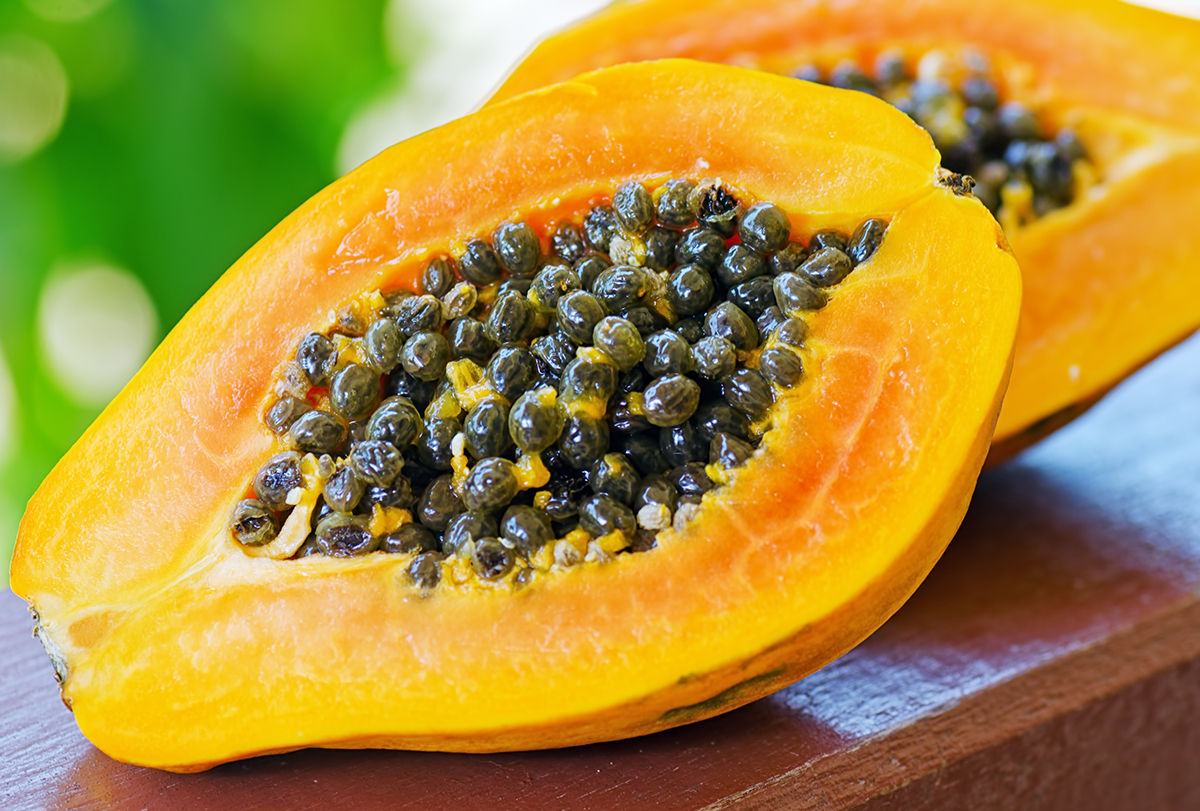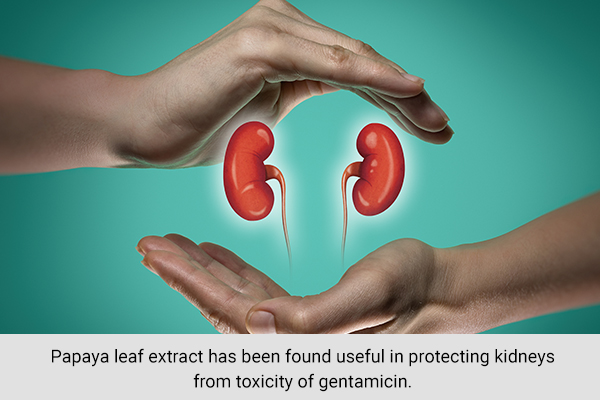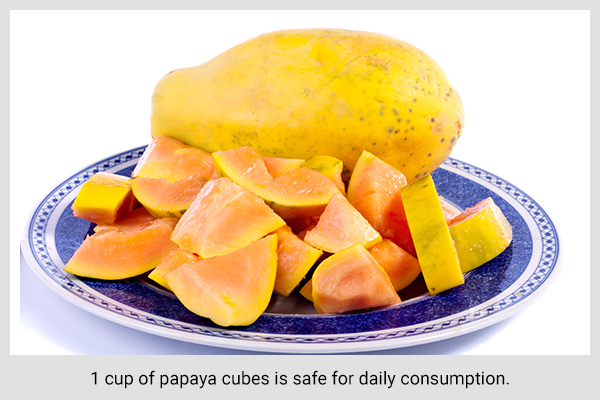In this article:
Papaya is a tropical fruit cultivated in countries such as Malaysia, South America, Indonesia, and South East Asia. All parts of the papaya plant are used including its fruit, roots, leaves, and seeds. Many of these regions also use the plant as a medicinal remedy. (1)

Some of its benefits include:
- Being a potent antioxidant, papaya can protect against diseases caused by free radicals such as arthritis, asthma, fatty plaques within the blood vessels, and Alzheimer’s disease. (1)
- Improved immunity (2)
- Papaya may protect against obesity and is useful in a weight loss diet. (3)
- Papaya seed is a useful remedy against intestinal parasites. (4)
- Unripe papaya is used in folk medicine to relieve menstrual pain and heal wounds. (1)
- Papaya offers antiaging effects due to its antioxidant capacity. (1)
- Papaya fruit is useful in reducing blood sugar levels and lowering hypertension. (5)
Papaya has a lot of benefits, but there are some claims that papaya may be harmful to the kidneys and there is always a doubt about whether people with kidney diseases can consume the fruit.
So, is papaya really harmful to the kidneys?
Papaya and the Kidneys

The kidneys are responsible for clearing the body of toxins and breakdown products of medicines as well as maintaining blood pressure and fluid balance. (6)
Much like papaya protects against oxidative damage to organs, it also protects the kidneys. In animal studies, papaya leaf extract was useful in protecting kidneys from toxicity of gentamicin, which is an antibiotic that has the potential to cause severe kidney damage. (6)
Papaya also contains phytochemicals that have a protective effect on the kidneys. Studies have found its seeds to prevent kidney damage caused by paracetamol. It was effective in reducing the high levels of creatinine and uric acid caused by excessive paracetamol use. (7)
High creatinine levels are a measure of acute kidney damage, (8) and papaya consumption can be beneficial.
In conclusion, papaya does not damage the kidneys but actually has a protective role.
Most-Asked Questions
How much papaya will benefit kidneys?

One cup of papaya cubes is safe for daily consumption. In addition, 1 tablespoon of cleaned papaya seeds can be chewed daily to detox the kidneys.
Who should avoid papaya?
Anyone with papaya allergies needs to avoid its consumption. In addition, it is better for pregnant women to avoid eating the fruit.
What are the disadvantages of papaya?
Papaya contains the potential to increase blood sugar levels when eaten in excessive amounts. Moreover, the high fiber content can lead to diarrhea and stomach cramps.
Is consuming papaya before bed good?
According to some traditional schools of medicine such as Ayurveda, fruit is better consumed during the day and needs to be avoided 4–5 hours after meals. However, if you struggle with midnight cravings, fruits such as papaya can be a healthy alternative.
Final Word
Papaya is a rich and nutritious fruit and is used in many regions as a remedy for ailments. It has a protective effect on organs including the kidneys.
Studies have found papaya seeds to protect the kidneys against damage from medication such as paracetamol and reduce the levels of creatinine and uric acid in the blood.
Against claims that papaya may be harmful to the kidneys, it actually protects the organ and aids in its detoxification.
- Was this article helpful?
- YES, THANKS!NOT REALLY


